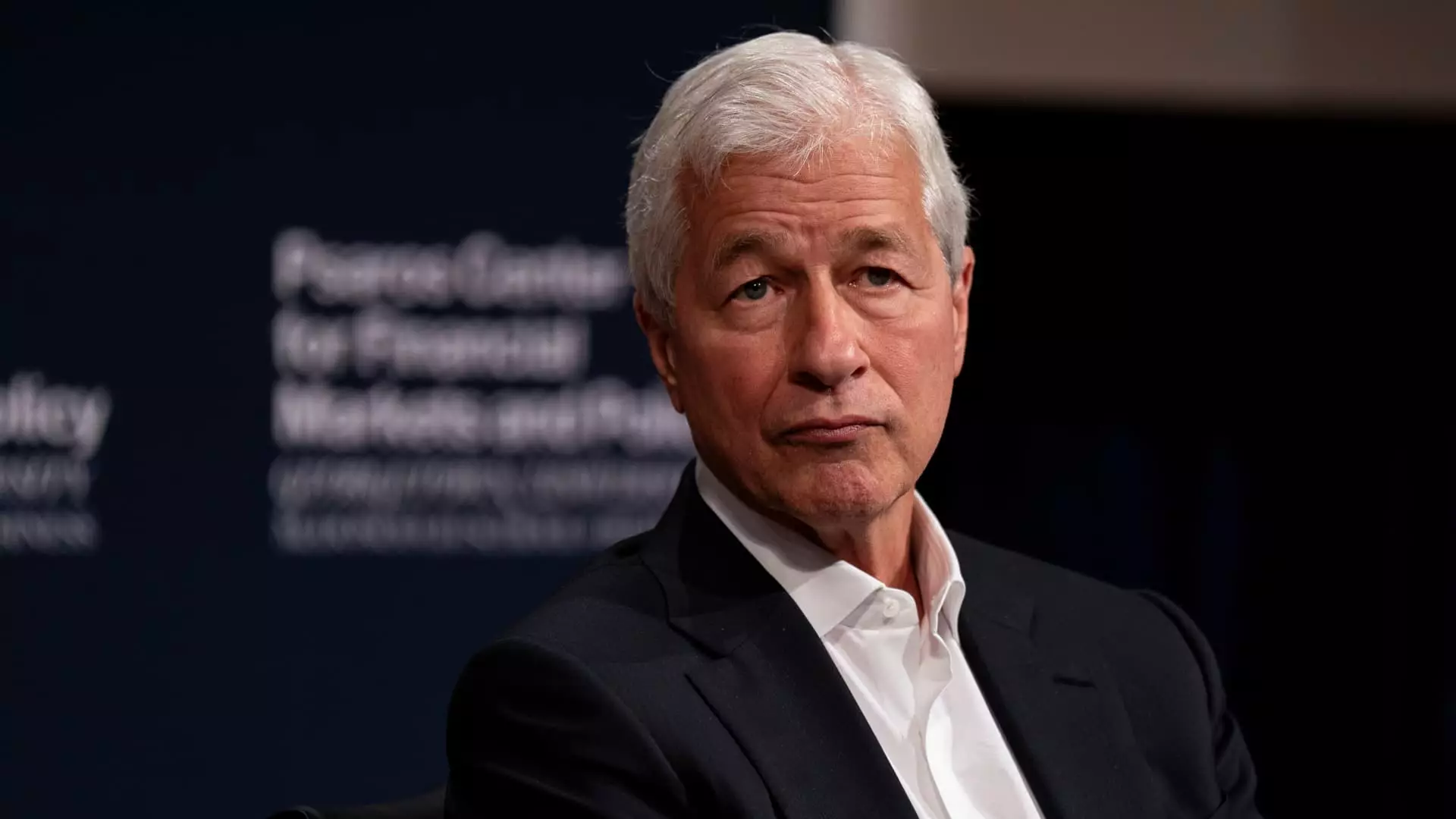In the complex landscape of global trade, the implications of tariffs have long been a contentious subject. Recently, Jamie Dimon, the CEO of JPMorgan Chase, provided insights into how impending tariffs, particularly those threatened by former President Donald Trump, could potentially shift the economic dynamics favorable to the United States. His assertions, shared during an interview at the World Economic Forum in Davos, reveal a nuanced perspective on tariffs as instruments of national security and economic policy.
Dimon presented a dichotomous view of tariffs, emphasizing their potential to serve as both a protective measure for American interests and a catalyst for inflation. He argued that if tariffs can ensure national security, then a slight increase in inflation may be a justifiable consequence. According to him, the primary goal should be safeguarding the nation’s interests rather than focusing solely on economic indicators like inflation. This perspective invites a broader discussion about the role tariffs play in balancing domestic economic welfare and security considerations.
Historically, tariffs have been perceived both as tools of economic aggression and as defensive strategies to correct trade imbalances. In Dimon’s view, the manner in which tariffs are executed determines their efficacy. He labeled tariffs as “an economic weapon,” suggesting they could be wielded for both constructive and destructive outcomes depending on the underlying motives and strategies.
The timing of Trump’s tariff threats adds layers of complexity to the current economic backdrop. With Trump’s administration poised to implement levies on key trading partners, including Mexico, Canada, China, and the EU, the potential for a global trade war looms large. The U.S. trade deficit with the EU, reported at $214 billion as of November 2024, has fueled Trump’s rhetoric of America being treated unfairly in trade agreements. His comments about the EU’s trade surplus reflect a broader discontent with global trading structures that favor foreign powers at the expense of American workers and industries.
Despite the concerns raised by tariffs, Dimon’s stance was echoed by other financial leaders, including David Solomon, CEO of Goldman Sachs. He, too, suggested that a reevaluation of trade agreements grounded in economic strategy might ultimately yield constructive growth for the U.S., contingent upon thoughtful negotiation tactics. The emphasis on “rebalancing” indicates that many leaders see an opportunity for improvement in the existing trade framework, aiming for a scenario where the U.S. derives more beneficial arrangements.
Amidst these conversations, the financial markets have shown their own volatility. Dimon highlighted that the U.S. dollar’s performance is influenced by tariffs, yet he emphasized that the overarching concern should focus on growth. Interestingly, the dollar has reportedly drifted lower in the face of tariff announcements, which may signify market apprehension toward potential economic repercussions.
The broader implications of tariff policies extend beyond inflation rates; they touch on economic growth trajectories, investor confidence, and international relations. How the financial world navigates this shifting landscape will largely depend on the decisions made by policymakers in response to tariffs and trade agreements.
The discourse surrounding tariffs as a tool for economic strategy encapsulates a critical intersection of policy, national security, and international trade dynamics. As Dimon aptly noted, the consequences of tariffs are dictated by their implementation and intent. If harnessed effectively, they could foster more equitable trade practices and bolster economic growth for the U.S. However, the inherent risks of straining global relationships and igniting inflationary pressures warrant a cautious approach.
In summation, the turbulent waters of global trade necessitate strategic foresight from leaders, both in the private sector and government, ensuring that the path forward does not come at the cost of long-term economic stability. The debate on tariffs serves as a reflection of broader ideological divides on economic policy, national security, and the quest for a balanced and fair trade environment.

